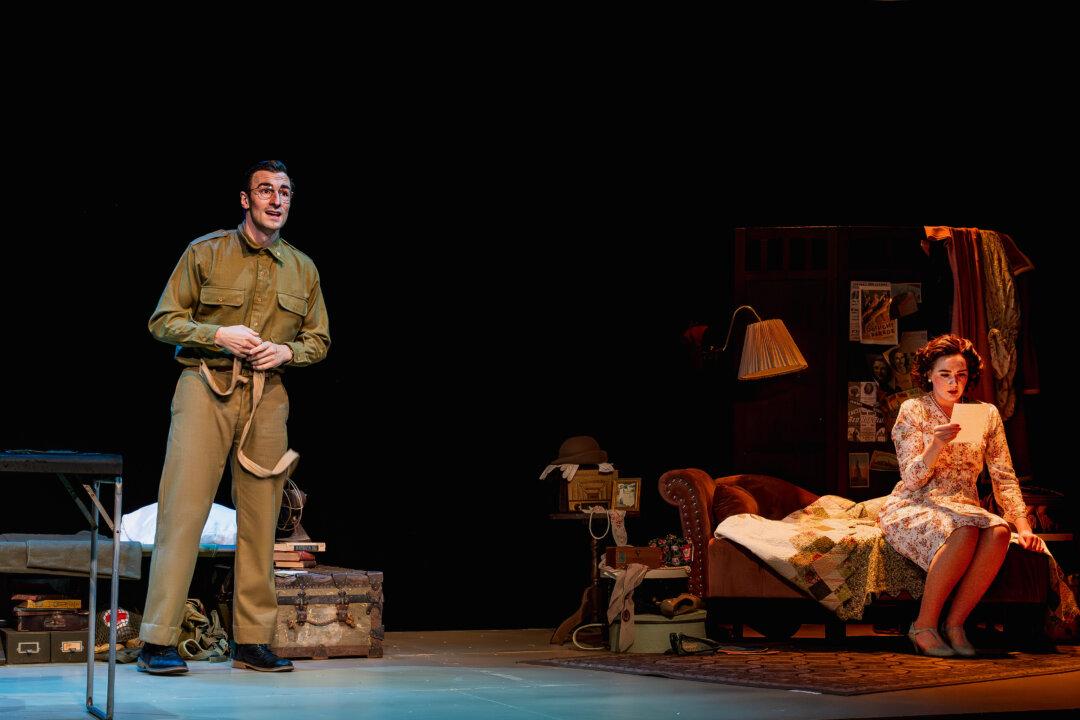NEW YORK—The written word is a powerful tool, especially when it transforms a method of communication into something more. That’s what happens in the touching romantic comedy “Dear Jack, Dear Louise” by Tony Award-winning playwright Ken Ludwig. Now having its New York City premiere, Ludwig explores his own family history in this story set against the backdrop of World War II.
In June 1942, U.S. Army Capt. Jacob “Jack” Ludwig (Michael Liebhauser), a doctor stationed at an Oregon military base, puts pen to paper and writes to Louise Rabiner (Alexandra Fortin), a struggling New York actress. The two have never exchanged a word before, much less seen one another. Jack is only contacting her at the urging of his parents, who are close friends with Louise’s parents. Louise, who is more outgoing than the somewhat reserved Jack, soon responds, and the two begin corresponding.





